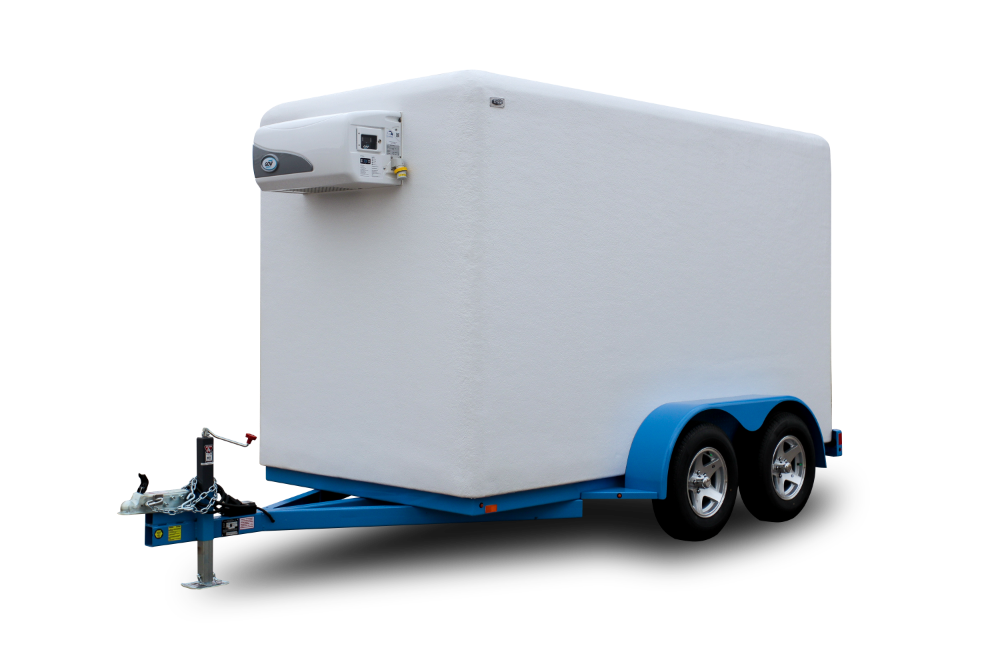Refrigerated Trailers vs. Refrigerated Trucks:
Refrigerated Trailers vs. Refrigerated Trucks: Which One is Right for You?
When transporting temperature-sensitive goods, choosing between a refrigerated trailer and a refrigerated truck depends on your business needs, budget, and logistical requirements. Here’s a comparison to help you decide.
1. Mobility & Flexibility
- Refrigerated Trailers: Require a separate truck to tow, offering flexibility in switching between different trailers as needed.
- Refrigerated Trucks: A single-unit vehicle that provides convenience and easy maneuverability, ideal for urban deliveries.
2. Capacity & Storage
- Refrigerated Trailers: Typically larger and offer greater storage capacity, making them suitable for bulk shipments and long-haul transportation.
- Refrigerated Trucks: Have limited space but are great for smaller loads and frequent, local deliveries.
3. Cost & Maintenance
- Refrigerated Trailers: Often a more cost-effective long-term option since they can be detached and used with different trucks.
- Refrigerated Trucks: May have higher initial costs and require maintenance for both the vehicle and the refrigeration unit.
4. Efficiency & Versatility
- Refrigerated Trailers: Best for businesses needing long-distance shipping or transporting large volumes.
- Refrigerated Trucks: Ideal for short-distance deliveries, such as food service distribution or medical supply transport.
5. Environmental Impact
- Electric-Powered Refrigerated Trailers: Reduce fuel costs and carbon emissions when using electric standby power.
- Diesel-Powered Refrigerated Trucks: May have a higher environmental impact but provide greater autonomy for long trips without charging stations.
Which One Should You Choose?
- Choose a refrigerated trailer if you need large-scale transportation, long-haul efficiency, and flexibility in operations.
- Choose a refrigerated truck if you need smaller, quick-turnaround deliveries within a city or region.

